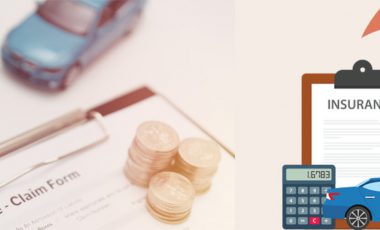Personal Injury Protection(PIP) Insurance Coverage
Key Insights
- Personal injury protection coverage is often confused with bodily injury and med pay coverage.
- This coverage is for the driver’s personal injuries and medical bills after an accident
- It is also popular with no-fault coverage or PIP insurance.
- PIP coverage will also provide protection for the passengers that were present inside the vehicle at the time of the accident along with the driver.
- It also covers everyday services support, lost wages, and funeral expenses.
One of the most common insurance coverage is personal injury protection insurance. Everyone has read about this term at least once while researching their car insurance policy. And most of the drivers get confused between PIP insurance and other coverage types like Bodily Injury Liability, Med Pay, etc.
Our objective with this blog is simple. RateForce wants to help every driver out there to understand what exactly is the PIP coverage. So that you can make an informative decision while buying or rejecting PIP in your insurance policy. Keep reading till the end to know how to add PIP coverage to your insurance policy at affordable rates. But let’s begin with a quick introduction of what exactly is personal injury insurance definition?
What Is PIP Coverage?
Personal injury protection is also popular by the name of no-fault insurance, or PIP coverage. PIP insurance covers the medical expenses of the driver after an accident regardless of who was at fault.
In some companies, PIP also includes lost wages. But for that, you will have to talk to your insurance carrier and discuss the coverage. The best part of PIP insurance is that it provides coverage even when you are out of your car. Yes, if you are not driving your car but you get hit by another car then also you will get coverage.
For example, if you are walking to the next supermarket and some car hits you then also you will get coverage for your medical expenses.
PIP and No-fault Insurance: Are they the same?
Confused about why PIP is also known as No-fault Insurance in some states? Personal injury protection is another name for no-fault insurance. The no-fault states usually require PIP to be a part of their no-fault car insurance.
How PIP relates to no-fault insurance? No-fault insurance is to protect the driver from getting sued after an accident. There is no difference between PIP and No-fault insurance coverage.
How Does PIP Insurance Work?
Personal injury protection works to cover all the medical expenses of the driver and the passengers after an accident. The company will investigate the claim and then will release the amount as per your limits.
Let’s understand how to collect pip insurance with an example.
If you have personal injury protection coverage with a limit of $4000 then this how your PIP insurance will work:
- You will have to file a claim within 30 days of your accident.
- Your insurance company will then investigate your claim. The agents will check if the injuries you got are because of a car accident or any other reason.
- Then the company will investigate the medical bills and the injuries. This is to make sure that you are not trying to file a car insurance fraud claim amount.
- Once the investigation is completed then your insurance company will compare your coverage limits with the claim. Sometimes the medical bills can be higher than your PIP coverage limits.
- Let’s say your coverage limit is $4000 and your medical bills are of a total of $6000 then the company will pay only $4000. The rest of $2000 will be paid by you.
- After all the investigations; you will get your insurance claim money.
What exactly is covered in Personal Injury Protection?
Now let’s have a look at what exactly does Personal injury protection insurance covers. The coverage type and scope might vary for different companies. Hence it is always better to connect with your company and discuss the coverage before buying the policy. In general, your personal injury protection policy will cover:
- Medical expenses: Your PIP policy will help you to pay for all your medical and surgical treatments after the accident. It will include the expense of an ambulance, the fees of a nurse, dental and optometric treatment, a bill of all your medicines and vaccines, all the medical supplies required, and prosthetic devices if needed.
- Lost wages (in some companies and in some situations only): If the driver is not able to work after the accident. When the doctor declares that the driver needs some time off the work then only you will get the benefits of the lost wage. Moreover; not every company provides lost wages coverage.
- Everyday services support (in a limited situation): This is helpful when the driver is declared unfit to perform household duties like cooking or walking a dog. PIP will cover the help you will hire to perform all these everyday tasks for your home.
- Funeral expenses (in some cases): This is beneficial if the driver dies in the accident. All the expenses of dead body transportation and funeral will be covered by your insurance carrier.
What is not covered in No-fault Insurance or PIP Coverage?
There are some situations or exceptional cases where your insurance company will not provide coverage. Let us have a look at when you will not get coverage in PIP insurance:
- Medical expenses exceeding your coverage limits. If your medical bills are more than your insurance coverage then you will not get the claim money.
- Damage to your car. If your car is damaged in the accident then you will need collision coverage to pay the repair expenses.
- If someone stole your car. Personal injury protection is about medical payment and not about the replacement of your car if it gets stolen.
- Lost wages exceeding your coverage limits.
- The damage you have caused to another person’s property. You need property damage liability coverage for that situation.
Coverage Limits of PIP Insurance
If you are thinking “how much PIP coverage should I get?” then we can help you. The drivers always get the option to select the coverage limit of the PIP insurance. The insurance limit will determine how much you will get from the claim after an accident.
If you are confused about the coverage limit of PIP insurance then you can compare it with your health insurance. Check how much your health insurance will cover in case of a road accident.
Based on that amount you can determine the coverage limit for your PIP coverage. Also; make sure to check the coverage limit for lost wages and other expenses in your PIP insurance. This will help you in case you are not able to work after an accident.
PIP vs BIL: What is the Difference?
BIL stands for bodily injury liability. People usually get confused between personal injury protection and bodily injury liability. Let’s have a look at some of the major differences between the two types of coverages:
- PIP coverage is to cover all your and your passenger’s medical bills after an accident. While BIL is to protect you against lawsuits if you are at fault in an accident.
- Bodily injury liability covers the medical expenses of the victim who got hurt in an accident where you were at fault. Personal injury protection will cover the expenses of the driver and the passengers who are at fault.
- PIP will cover only the wages, medical costs, and funeral expenses as per the limit of the coverage. While BIL will protect the driver financially if the victim decides to sue him or her.
We hope you are now clear about the exact difference between bodily injury liability and personal injury protection. Let’s have a look at where PIP is compulsory for drivers.
States Where Drivers Need PIP To Drive:
Personal injury protection is compulsory for drivers in some states of our country. If you want to use your car on the roads of your state then you will have to get PIP coverage. Here is the list of all the states that have PIP coverage compulsory:
- Arkansas
- Delaware
- Florida
- Hawaii
- Kansas
- Kentucky
- Maryland
- Massachusetts
- Michigan
- Minnesota
- New Jersey
- New York
- North Dakota
- Oregon
- Pennsylvania
- Puerto Rico
- Utah
States where PIP is optional but available for the drivers
There are some states where PIP coverage is not compulsory. In these states, you don’t have to buy the PIP policy but it is available with the insurance companies if you want to buy it for your safety:
- District of Columbia
- New Hampshire
- South Dakota
- Texas
- Virginia
- Washington
Setting Up Limits of PIP if you have Health Insurance
Do I need pip coverage if I have medicare? This is one of the most frequently asked questions about PIP.
In states where PIP is required, drivers tend to buy the lowest PIP coverage limit just for the sake of it. But with the lowest limit, the driver will get lower coverage.
Similar to BIL; health insurance will also not cover all the benefits of PIP. there is no doubt that you will get a high coverage limit for your medical bills. But what about the lost wages or the substitute services?
Health insurance will not pay your wages while you are at the hospital. Also, you will not get paid hiring help for the daily household tasks like cleaning or cooking. Hence; PIP has more benefits as compared to health insurance.
Are personal injury protection and Med Pay the same?
You are also confused about which is better between PIP and MedPay. Don’t worry we got you covered.
Med Pay insurance covers all your hospital-related expenses after an accident. It can be surgical, chiropractic, surgical treatments. Along with that, the driver will get coverage for X-rays, ambulance, prosthetics, and even funeral expenses. You can try to substitute health insurance with med pay. But keep in mind, Med Pay works only in the case of accidents. In case of fever, kidney failure, or heart attack you will need healthcare insurance.
Now PIP is also for medical coverage but the benefits are more with PIP. The driver will get coverage for occupational or physical therapy along with psychiatric treatment coverage. Also; the driver will get coverage for lost wages which is not provided in Med Pay.
Another difference is; Med Pay insurance is not required in any state of the USA. While PIP is required for every driver in the majority of the states.
How to buy affordable PIP coverage?
To buy affordable PIP coverage you will have to keep in mind two things:
- Discounts
- Research
By combining these two elements you can get an affordable auto insurance rate in any state of the country. Let’s have a look at the impact and benefits of each element:
Car Insurance Discounts
Car insurance discounts can lower your insurance rates to great numbers. All you have to do is check your profile and the type of discounts available in your company. Most of the insurance companies prefer not to mention the discounts. Make sure to ask about it yourself. Each driver has a unique profile and each profile gets different types of car insurance discounts. Check your driver profile; get a list of discounts available and ask for a new quotation from your insurance carrier.
Research
Get quotes from different insurance companies around your area and compare their quotes. Each car insurance company has its own method of calculating the pip insurance quote for each driver. There are some factors that affect the car insurance rates for every driver. And each company considers these factors differently.
As a result; the cost of car insurance can be too high in some companies and too low in others. This sounds like a time-consuming activity but when you see the difference in the prices from different companies you will realize its benefits.
So; when you combine these two elements you will get a much affordable quote. All you have to do is get the cheapest car insurance quote in your city and then apply for different discounts.
Over To You!!
Do you want to buy PIP insurance for your family? Confused which is the best car insurance company for your profile? RateForce has the best solution for you. Get customized car insurance quotes from all the leading insurance carriers in your city. Our experts are always here to support you throughout the process.

We generated 12,100,000+ Quotes (...counting), Helping People to Save Money and Time.
Editorial Guidelines: The above is meant as general information to help you understand the different aspects of auto insurance. This information does not refer to any specific auto insurance policy. Coverages and other features vary between insurers, vary by state, and are not available in all states. References to costs of coverages/repair, average or typical premiums, amounts of losses, deductibles, etc., are indicative and may not apply to your situation. We encourage you to speak to our insurance representative and to read your policy contract to fully understand your coverages.
Featured Posts

Cheapest Car Insurance After a DUI: Discover Wallet-Friendly Options

Cheap Liability-Only Car Insurance for 2024: Complete Guide

